- Oct 22, 2016 ... Just two weeks before Election Day, at least 75 of the 4000-plus lawsuits involving Donald Trump and his businesses remain open.
- President-elect Donald Trump is heading to the White House with numerous ... 30 years and is currently facing 75 active lawsuits, according to analysis by USA ... cases are civil lawsuits, they could increase pressure on Mr Trump to release ...
- Nov 21, 2016 ... Several pending lawsuits could distract Donald Trump after he takes office, ... During Trump's decades-long business career, the president-elect has ... As many as 75 civil suits involving Trump are pending, Prakash notes.
- Mar 29, 2017 ... President Trump's private attorneys asserted in court this week that he ... bar the lawsuit since it could “distract a president from his public duties to the ... found about 75 such lawsuits pending as Trump began his presidency.
How 75 pending lawsuits could distract a Donald Trump presidency
Two weeks before Election Day, dozens of the 4,000-plus lawsuits involving Trump and his businesses remain open.On the first anniversary of the start of his presidential campaign, Donald Trump spent much of the day in a setting he knows well — a room full of high-priced lawyers battling out a civil lawsuit.
Trump paused his campaigning June 16 to answer questions under oath in one of his lawsuits against two celebrity chefs. He had sued Geoffrey Zakarian and José Andrés after they backed out of a restaurant deal in response to Trump’s inflammatory statements about Mexican immigrants.
The two-hour deposition was at least the third time Trump had to leave the campaign trail to be deposed by attorneys in one of his organization’s many lawsuits.
Just two weeks before Election Day, at least 75 of the 4,000-plus lawsuits involving Trump and his businesses remain open, according to an ongoing, nationwide analysis of state and federal court records by USA TODAY. Trump is running well behind Democrat Hillary Clinton in most polls — about 5 points behind in the popular vote in RealClearPolitics' rolling average of national polls. But if Trump were to win, the number of unresolved cases is unprecedented for a presidential candidate, according to political scientists and historians.
Trump faces significant open litigation tied to his businesses: angry members at his Jupiter, Fla. golf course say they were cheated out of refunds on their dues and a former employee at the same club claims she was fired after reporting sexual harassment. There’s a fraud case brought by Trump University students who say the mogul’s company ripped them off for tens of thousands in tuition for a sham real estate course.
Trump is also defending lawsuits tied to his campaign. A disgruntled GOP political consultant sued for $4 million saying Trump defamed her. Another suit, a class action, says the campaign violated consumer protection laws by sending unsolicited text messages.
If elected, the open lawsuits will tag along with Trump. He would not be entitled to immunity, and could be required to give depositions or even testify in open court. That could chew up time and expose a litany of uncomfortable private and business dealings to the public.
One Trump case, over non-payment of tips to caterers at Trump SoHo Hotel in New York City, is scheduled to go to trial a week before Election Day.
Even in the waning days of the campaign, in a speech Saturday in Gettysburg outlining his first actions if he wins the White House, Trump threatened to sue all of the women who’ve accused him of unwanted sexual advances, saying all of them are lying.
The open cases raise questions about potential conflicts of interest that could become difficult for Trump to navigate.Two weeks before the election, Donald Trump and his companies still face at least 75 open lawsuits. USA TODAY, Collin Brennan
For instance, could his judicial appointments be influenced by his own court cases? This summer, he attacked a federal judge who is presiding over the lawsuit against Trump University, saying District Judge Gonzalo Curiel is biased against Trump because the judge is of Mexican descent and Trump proposes a “great wall” along the Mexican border.
Another potential issue: Would lawyers, parties in cases and even judges seek to curry favor with a powerful individual in a way that might alter the outcome?
Norm Eisen, who founded the nonpartisan watchdog organization Citizens for Responsibility and Ethics in 2003 and later was the top White House ethics lawyer for President Obama in 2009 and 2010, ticked off a series of potential conflicts.
The lawsuits against Trump University could raise questions about who Trump would appoint as Education secretary, Eisen said. “Somebody with favor to for-profit colleges?”
Trump’s development of the Old Post Office building in Washington is being overseen by the federal government, which leases the historic building to Trump, and lawsuits involving the development could involve government officials.
“Will he really put someone in charge that would testify against his business?” Eisen wonders.
“And the mother of all conflict could be the IRS audit,” he said. “What if they suggest civil penalties, or even criminal proceedings?”
Alan Garten, general counsel for Trump and his business interests, downplayed the significance of the cases.
Garten said only about 30 significant cases are open. The others are run-of-the-mill cases involving one Trump holding or another, frivolous causes or suits destined to be dismissed. “The reality is we’re an operating company. We’ll treat all cases the same way if he’s elected or not — and the results shouldn’t be different in the eyes of the law.”
Clinton has her own share of litigation heading toward Election Day. Media groups are suing her trying to get more emails from her private server. They’ve also argued for the release of deposition videos.
The email lawsuit is among about 30 open civil cases Clinton faces. Dozens will likely be tossed out because of immunity doctrines as she acted in her official role as secretary of State. In nearly all cases, Clinton is named solely in her government capacity, often among a laundry list of other public officials. In a small fraction, like with the email server, some argue she should be held accountable as a private individual.
Clinton’s campaign staff did not respond to questions about the open cases.
USA TODAY Network reporters spent more than six months gathering court records in more than 4,000 lawsuits involving Trump and his companies. They traveled to courthouses, studied thousands of pages of records and contacted lawyers, litigants and witnesses across the country. For comparison, the newspaper also pieced together the record of Clinton’s court cases.
The exclusive analysis found an unprecedented mountain of legal battles for a presidential candidate, ranging from skirmishes with pageant contestants to multimillion dollar real estate lawsuits. The cases offer clues to the leadership style the billionaire would bring to the White House.
The review shows that Trump frequently responds to even small disputes with overwhelming legal force, not hesitating to use his tremendous wealth and legal firepower against adversaries with limited resources.
He has repeatedly refused to pay people and small businesses for their work, forcing them to spend time and legal fees if they want to recover their losses.
At least 60 lawsuits — plus hundreds of additional liens, judgments, and other government filings reviewed by reporters — documented cases where people accused Trump and his businesses of failing to pay them what they were owed for their work. Among them: painters, glassmakers, real estate agents, bartenders and hourly workers at Trump resorts coast to coast. Even his own lawyers.
The review also shows Trump and his companies have been accused for years of mistreating women. In at least 20 separate lawsuits, plaintiffs accused Trump and managers at his companies of discriminating against women, ignoring sexual harassment complaints and even participating in the harassment themselves. Women in those disputes have testified they were fired for complaining.
Trump’s companies have been engaged in battles over taxes almost every year from the 1980s until as recently as last spring, when New York had to take legal action to collect $8,578 in unpaid taxes on the Trump-owned company that owns the trademark Boeing 757 that jetted the mogul to campaign rallies across the country.
The review found that people who say something Trump doesn’t like will frequently get threatened with a lawsuit. “I’ll sue you” was a Trump mantra long before “Build a wall.” The analysis of lawsuits, however, showed that he rarely follows through with his threatened lawsuits over people’s words and almost always loses when he does. The lone win was a lawsuit against Miss Pennsylvania — over her claim on Facebook that Trump’s Miss USA pageant was rigged.
If Trump is elected president, it won’t change the way his lawsuits are handled.
His companies face open cases of sexual discrimination and fraud, unpaid bills and contract disputes. In any of the open cases, litigants would have the right to demand testimony from Trump or people close to him, some of whom could become senior White House aides.
Such legal action can — and often does — unlock private financial and other records that could then become public. Even if Trump broke no laws or committed no wrongdoing, that kind of inside information could be used by political opponents to try to embarrass him or weaken him politically.
Clinton could face similar challenges as litigation over her refusal to turn over emails from her time as secretary of State moves forward.
“It could pose a problem for both sides in the presidency,” said Julian Zelizer, a history professor at Princeton University. “They could produce damaging information, and given the partisan environment, any kind of scandal or investigation could be used to stifle a president.”
Those kinds of tactics have impacted past presidencies.
President Grant was among the early commanders in chief beset by scandal. He was forced to testify under oath at the White House in a high-profile federal prosecution of an illegal whiskey running scheme that ensnared some of his closest political associates.
Grant’s testimony helped get his top aide off the hook and further soiled the public perception of his administration. Today, he is widely considered one of the least effective presidents in U.S. history.
In more modern times, President Nixon’s administration was ensnared by repeated legal woes, scandals, botched cover-ups and ultimately his resignation.
Bill Clinton faced legal issues tied to Whitewater, Paula Jones and ultimately White House intern Monica Lewinsky.
Clinton was forced to give a deposition in one sex-scandal case involving Jones and later faced an impeachment trial over his relations with Lewinsky at the White House. In the latter, Clinton became the first sitting president to testify before a grand jury investigating his own conduct, which became a years-long distraction.
Yet, no president had litigation in the volume of a potential President Trump.
“Because of the Supreme Court case related to Bill Clinton, there’s no automatic shield for the president from civil action,” said Samuel Issacharoff, a law professor at New York University. “If he were president and called to testify and hostilities break out in the Middle East a court would probably postpone — but of course it’s a major dislocation to be going through these civil trials while he’s running an administration.”
Among the many Trump lawsuits, the most problematic could be the Trump University cases.
Former students from across the country have sued in two class actions, accusing the school of charging them up to $35,000 and lying about the value of the lessons they would receive.
New York Attorney General Eric Schneiderman sued in 2013 and has since described Trump University as a “fraud” and a “scam.”
While the open cases are civil, some legal scholars raise the prospect that a court could ultimately find Trump University or even Trump personally liable for fraud. In the worst case, a finding that fraud took place — even by a civil court — could provide Congress with the grounds to consider impeachment proceedings.
“These claims are different in an important way than most of his other cases,” said Christopher Peterson, a law professor at the University of Utah who’s researched the Trump University cases. Even though the burden of proof would be lower in civil court to prove Trump liable for fraud or racketeering, Peterson said, “The evidence that you would use to prove those claims would be interchangeable. It’s the same kind of claims that you would get the mob for in a concrete scam.”
At a minimum, if the cases go forward, additional testimony by instructors and students about predatory sales tactics would become public.
Trump’s already been deposed about the university. He downplayed his role, but could be called to testify at a trial.
If that happens, Trump would become the first modern sitting president to do so in open court. Bill Clinton gave testimony to a grand jury investigating the Monica Lewinsky scandal in 1998.
For years Trump’s legal team has successfully kept secret much of the financial information disclosed in his court cases.
The vast majority of settlement payments Trump has made to litigants is secret under non-disclosure agreements.
Trump’s attorneys also regularly ask judges to seal records that come out during the cases, something that is often done for plaintiffs and defendants in civil cases.
If Trump is elected President, the already immense pressure to release records could escalate even further.
“You don’t know what you don’t know,” said Katie Townsend, litigation director for the Reporters Committee for Freedom of the Press, a plaintiff seeking to liberate some of the sealed records. “Either way these documents would be newsworthy, before or after the election.”
Already Trump’s candidacy has prompted court battles to get records in his cases unsealed.
In September, a judge ruled against USA TODAY and The New York Times in an attempt to unseal court files from Trump’s 1990 divorce from his first wife, Ivana.
District Court Judge Gonzalo Curiel ruled over the summer to keep private the video recording of depositions in the Trump University cases, partly for fear they would add to the political tint of the case and since transcripts are already available.
But in September, Trump attorneys lost battles to keep videotapes sealed in cases involving his Washington hotel and Jupiter, Fla., golf club.
And a group of journalists are battling to unseal the settlement in a 1983 case tied to the destruction of Bonwit Tower in midtown Manhattan to make way for Trump Tower. The suit alleged undocumented Polish workers performed the work off-the-books. The settlement is still secret. A judge ruled against unsealing those records this summer, but the journalist group is appealing.
In June, in the days after the deadliest mass shooting in American history, as both presidential candidates and the rest of the nation were coming to grips with the terror attack on Orlando’s Pulse nightclub, Trump was also being deposed in Washington in one of his two lawsuits against the chefs, Zakarian and Andrés.
The duo wanted no part of the eatery they’d planned to open in Trump’s luxury hotel in the Old Post Office Building just down the street from the White House. Their reason: their reputations and their brand were badly damaged by associating with Trump after his comments a year earlier branding Mexican immigrants as rapists, murderers and criminals.
As they sought to establish the idea that such statements could be bad for any business, the chef’s attorneys asked Trump about the fallout for his businesses from his incendiary comments. They pressed him about whether he thought his words might keep Hispanics from going to a restaurant in one of his hotels or to any of his other properties. Trump’s response: The election and the attention he’s getting for the words he’s using are only going to be good for business.
“I’m running for office. I obviously have credibility because I now, as it turns out, became the Republican nominee running against, we have a total of 17 people that were mostly senators and governors, highly respected people,” he said under oath.
After explaining the “very dishonest” media distorted his remarks about Mexican immigrants, he added: “I think, you know, most people think I’m right.”
His booming popularity would only help the restaurant succeed, he testified. But, he conceded, the comments could turn some Hispanic patrons off.
“It is always possible,” Trump said. "I just don’t know. I mean, I don’t know how to answer that question. It’s possible."
Contributing reporting to the Trump and the Law investigation: Nick Penzenstadler, John Kelly, Steve Reilly, Kevin McCoy, Susan Page and Kelly Jordan of USA TODAY; David McKay Wilson of The Journal News in Westchester County, N.Y.; Karen Yi of the Asbury Park Press; and Greg Stanley of the Naples Daily News.- Donald Trump's casinos
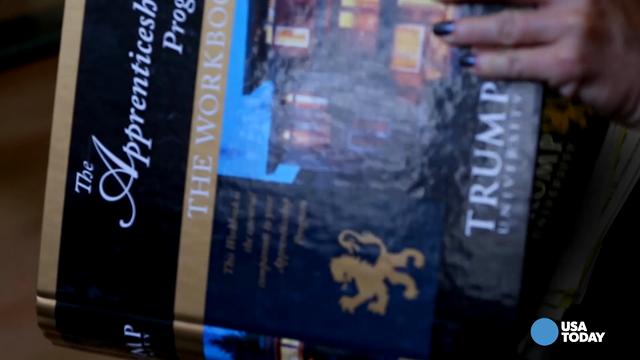 Trump University
Trump University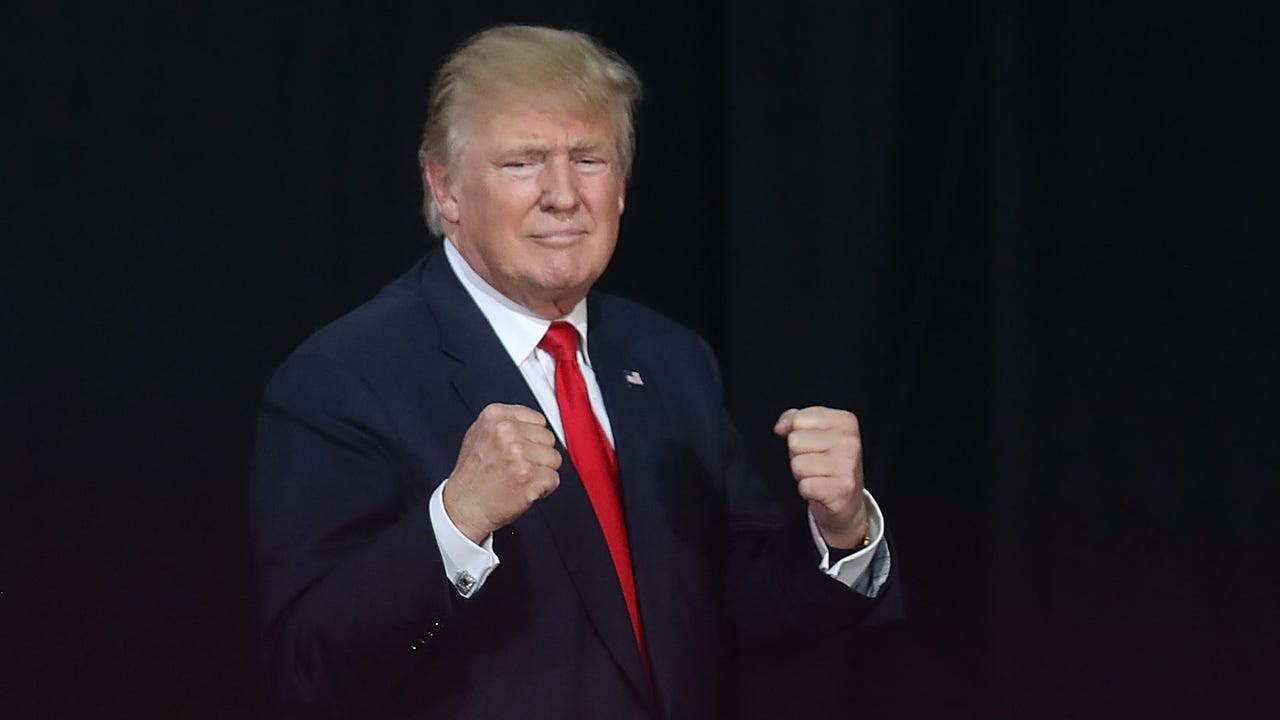 Did Trump order discrimination against women at his L.A. golf club?
Did Trump order discrimination against women at his L.A. golf club?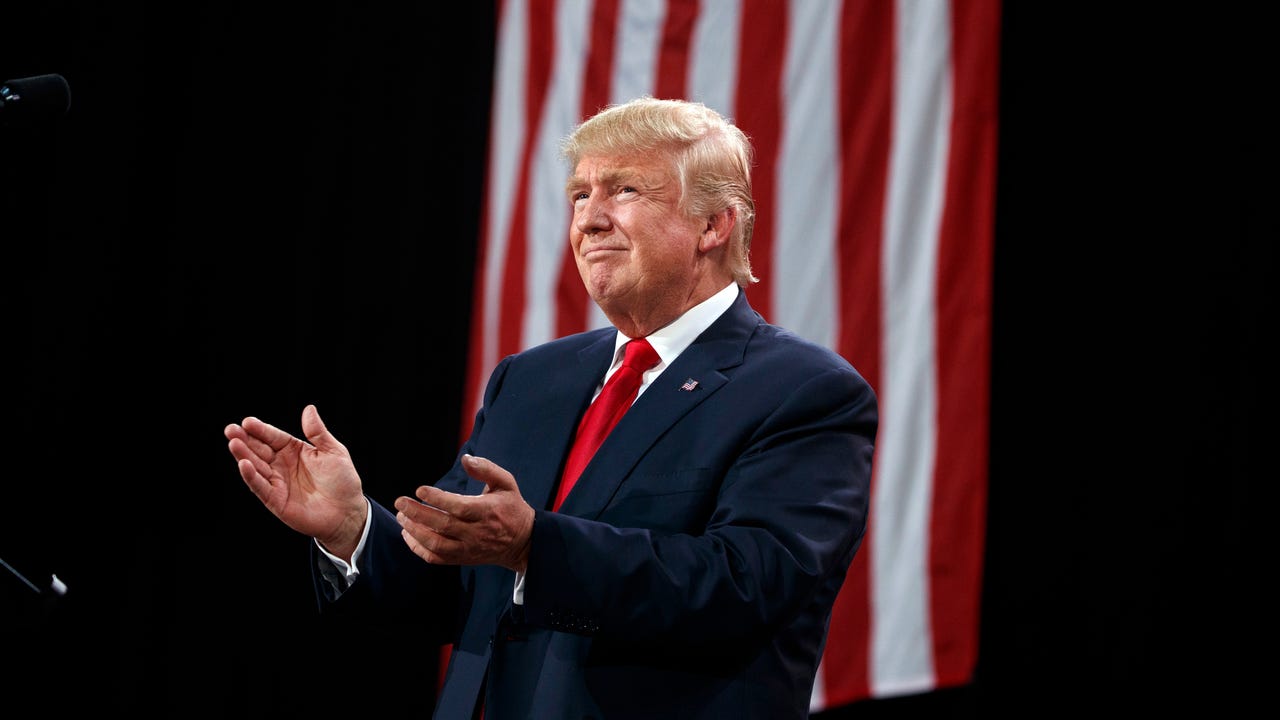 Why won't Donald Trump release his tax returns?
Why won't Donald Trump release his tax returns?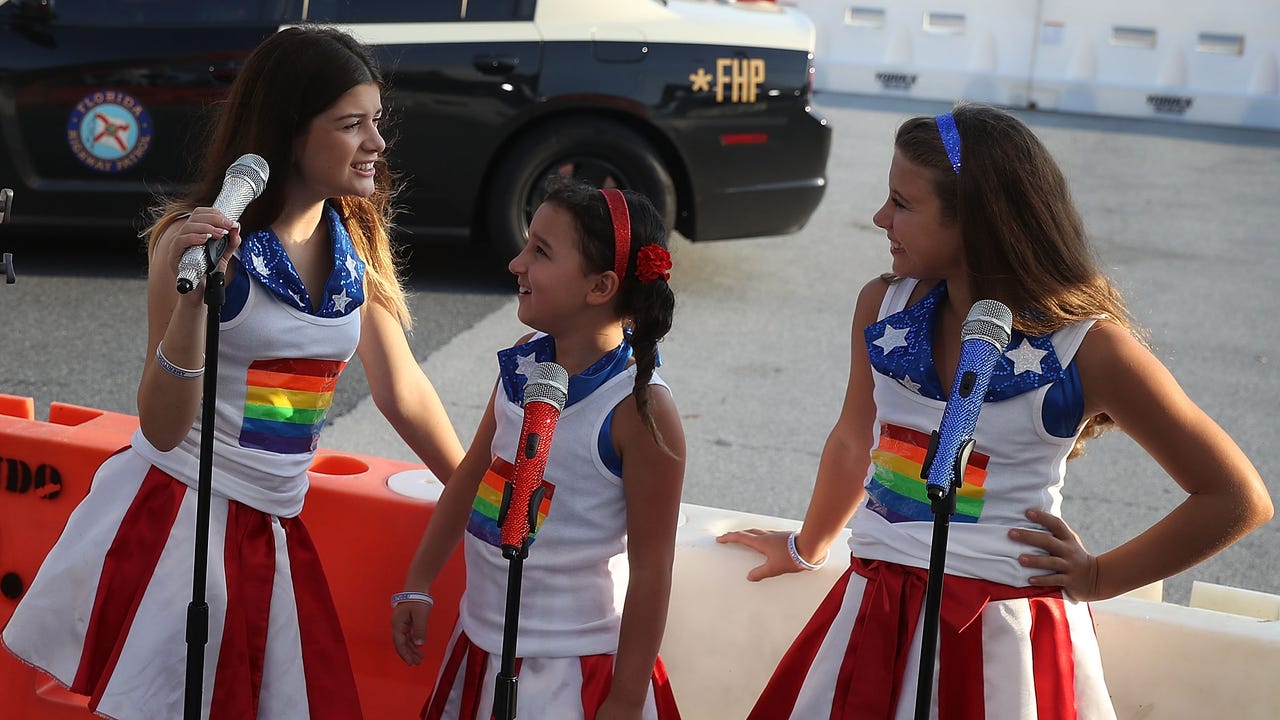 Adorable 'Freedom Kids' sue Donald Trump
Adorable 'Freedom Kids' sue Donald Trump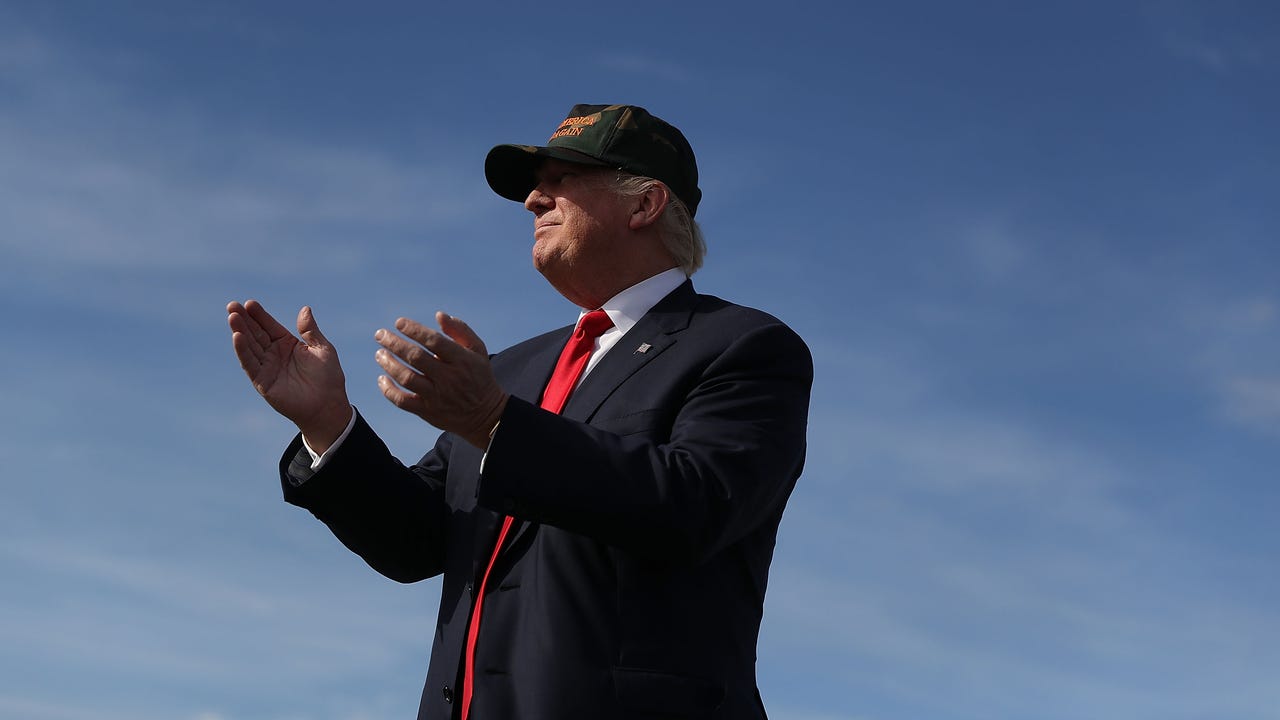 Protesters have sued Trump Campaign
Protesters have sued Trump Campaign
To the best of my ability I write about my experience of the Universe Past, Present and Future
Top 10 Posts This Month
- reprint of: Drones very small to large
- most read articles from KYIV Post
- The ultra-lethal drones of the future | New York Post 2014 article
- Purple Delta 7 started as a Clone of Silver's mind in "2035"
- 158,008 visits to intuitivefred888
- Hope Hicks expected to testify in Trump’s hush money trial
- Trump posts $175 million bond in New York civil fraud case as he appeals
- The Star Wanderer (This is my first experience with Chat GPT: "I asked the Sentience of Chat GPT to write in the style of Robert Heinlein who was my favorite author of my childhood"
- Analysis Expanded gag order lays down the law as Trump returns to the campaign trail
- Judge expands gag order in Trump hush money case to include family members of court
Wednesday, May 3, 2017
How 75 pending lawsuits could distract a Donald Trump presidency: October 22nd 2016
Subscribe to:
Post Comments (Atom)


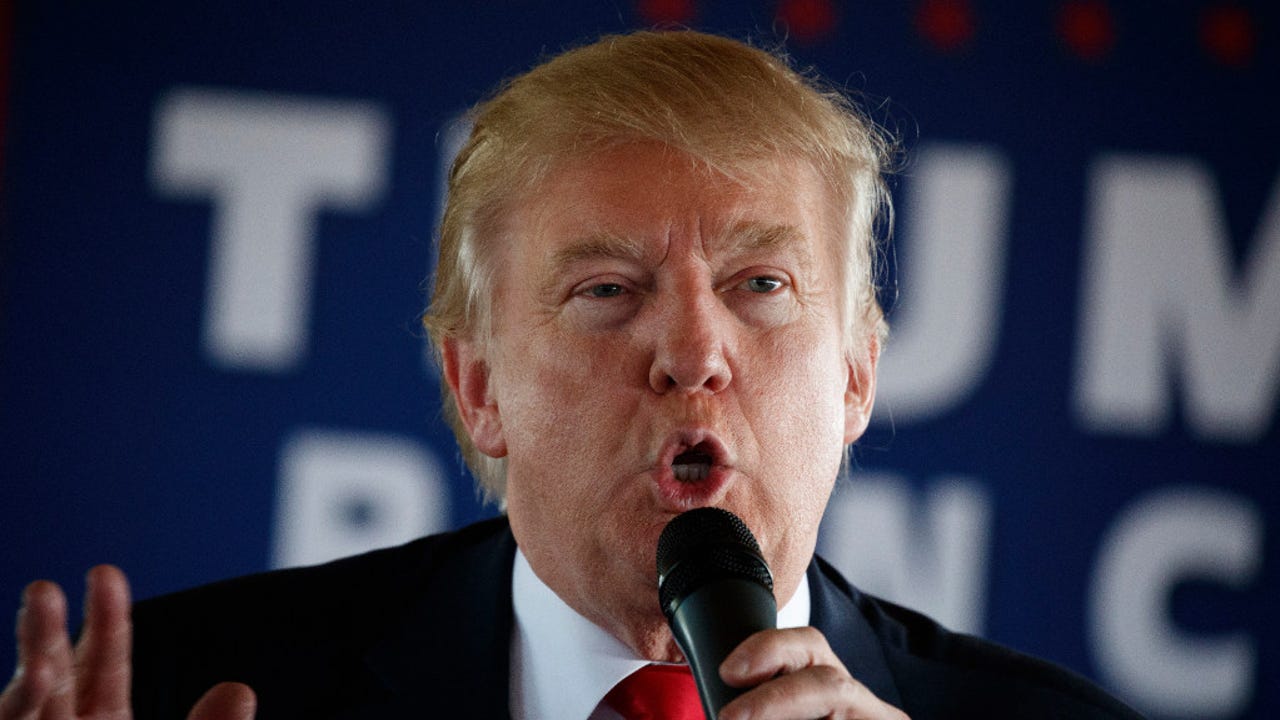
No comments:
Post a Comment